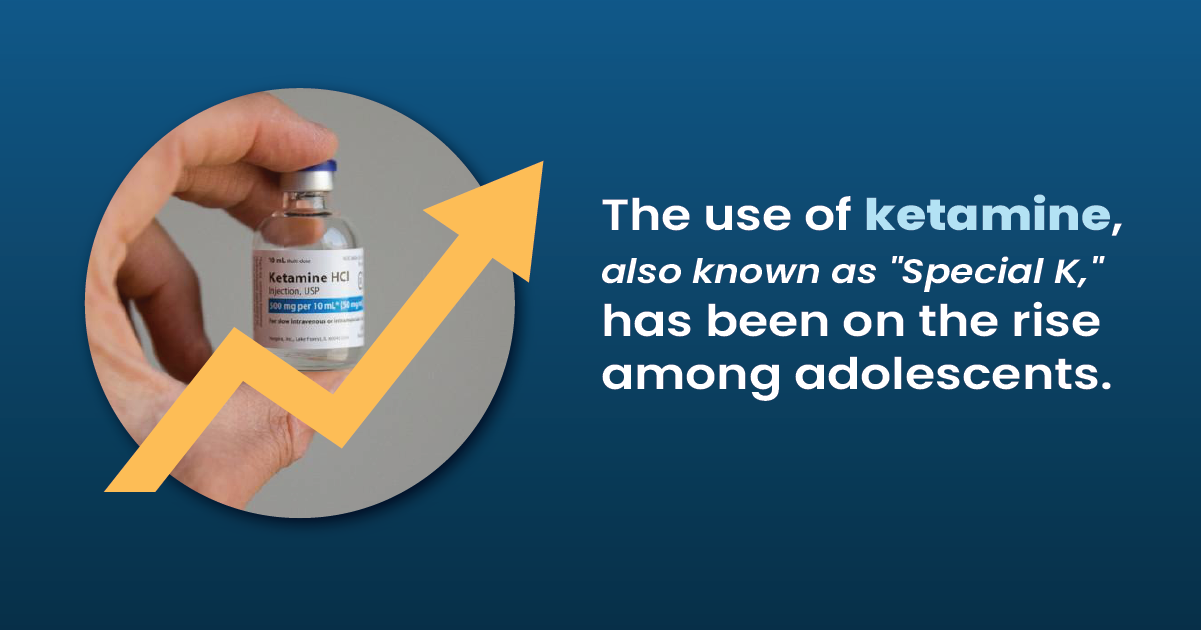Red Flags: Ketamine Abuse Symptoms
Ketamine abuse is when someone uses too much ketamine, a medication often used as an anesthetic. Symptoms of abuse may include confusion and difficulty thinking and impact overall well-being. People abusing ketamine may also experience mood swings and trouble speaking.
Long-term use can lead to a vicious cycle of addiction, making it hard to break free from it. Seeking treatment services from a healthcare professional is crucial for those facing ketamine abuse, as it can have serious health consequences.
Key Takeaways
Ketamine abuse poses risks to physical and mental health, requiring professional intervention and treatment. Here’s what you need to know:
- Ketamine abuse requires awareness to lower the risk of overdose.
- Recognizing physical and psychological ketamine abuse symptoms is crucial for early treatment services.
- Comprehensive treatment services ensure effective ketamine abuse recovery.
The Recovery Team can help you break free from addiction. Call us today at (800) 817-1247.
Ketamine Abuse in the United States
t According to a study by the Diversion Control Division (DEA), the past year’s use among 12th-grade students was 1.3 percent in 2020, 0.9 percent in 2021, and 1.2 percent in 2022. This increase is concerning.
Ketamine, often used for chronic pain and treatment-resistant depression, poses risks, leading to mental health problems. Chronic ketamine abuse can result in a state known as the “k-hole.” The popular recreational drug is misused in social settings, causing cravings and substance abuse. It’s crucial to be aware of the side effects of ketamine and seek help for those facing its misuse.
Understanding its Medicinal and Recreational Aspects
Getting to know more about ketamine involves understanding its medicinal and recreational sides. In medical settings, doctors may use pharmaceutical ketamine for specific purposes, like pain management. It’s crucial to avoid the abuse of ketamine and seek medical advice, especially when dealing with psychedelic drugs with potential health impacts.
Warning Signs of Ketamine Abuse
Ketamine abuse can lead to various signs and symptoms, affecting the body and mind. Understanding these indicators is crucial for recognizing potential issues and seeking help.
Physical Signs
Regular ketamine use may cause physical signs such as abdominal pain, high blood pressure, and urinary tract problems. Taking larger doses, especially among young people, can result in severe damage to internal organs. This misuse of ketamine poses a risk of irreversible damage, impacting overall health. Chronic use can result in ketamine bladder syndrome, causing urinary and bladder problems.
Additionally, individuals may exhibit symptoms such as muscle stiffness, tremors, and difficulties with coordination, reflecting the drug’s impact on the nervous system.
Psychological Signs
Individuals experiencing ketamine abuse may encounter psychological signs like hallucinations and a dream-like state. This dissociative anesthetic can alter perception, leading to an out-of-body experience or detachment from reality. Prolonged use may cause depression, further complicating the recovery of an individual.
Ketamine abuse can disrupt normal sleep patterns, leading to insomnia and other sleep disturbances. Ketamine use may contribute to memory impairment, further complicating the addiction cycle. Sleep-related issues can further contribute to physical and mental health problems over time.
Behavioral Signs
Common signs of a ketamine overdose include respiratory depression, a serious condition affecting breathing. Those struggling with ketamine addiction might exhibit behavioral changes, such as withdrawal symptoms and aggressive behavior, when not using the drug. Additionally, a person abusing ketamine may put themselves in risky situations, possibly leading to a near-death experience.
Recognizing the symptoms of ketamine abuse is essential for early intervention and preventing further harm. Seeking professional help is crucial for those experiencing the negative effects of ketamine misuse, as it can have long-lasting consequences, including potential brain damage.
Risk Factors Triggering Addiction
Addiction to ketamine can result from various risk factors, contributing to the cycle of drug abuse and dependence. Individuals using ketamine, a dissociative drug with hallucinogenic effects often encountered as a club drug, face an increased risk of addiction. The following factors elevate the likelihood of ketamine addiction:
- Frequent Drug Use: Regular and consistent use of ketamine can lead to tolerance and dependency.
- High Dosages: Taking larger doses of ketamine increases the risk of developing an addiction.
- Young Age: Younger individuals may be more susceptible to the negative consequences of ketamine use.
- Coexisting Mental Health Conditions: Those with pre-existing mental health issues such as depression may be at a higher risk of developing ketamine addiction.
These factors, combined with dissociative effects and increased heart rate associated with ketamine, create an environment conducive to addiction. Recognizing signs of ketamine addiction, such as persistent drug use and negative consequences, is crucial for early intervention.
Impact of Ketamine Abuse on Your Life
Misusing drugs, especially for recreational use, can have significant effects on your life. Let’s explore the short-term and long-term impacts of using drugs like ketamine.
Short-Term Effects
Engaging in recreational use of ketamine can quickly lead to short-term consequences. Individuals may experience hallucinations, where things seem unreal or distorted. The physical effects can include altered coordination, slurred speech, and rapid eye movements. These immediate impacts can impair judgment and increase the risk of accidents or injuries.
Long-Term Effects
Continued and long-term ketamine use can have more profound effects on your well-being. Physical withdrawal symptoms may emerge, making it challenging to stop using the drug. Long-term ketamine use is linked to weight loss, bladder problems, and respiratory issues.
It can also impact mental health, leading to anxiety or depression, requiring dual-diagnosis treatment for recovery. Additionally, street ketamine, which may not be regulated, poses further risks, potentially leading to serious health problems such as heart attacks.
Treating Ketamine Abuse
Addressing ketamine abuse requires a comprehensive approach with a focus on the individual’s well-being. Detox, an initial step, helps manage physical withdrawal symptoms. Inpatient treatment, offering a controlled environment, ensures a higher quality of care. Cognitive-behavioral therapy targets unhealthy thought patterns and behaviors, aiding in long-term recovery.
Group therapy fosters a supportive community, allowing individuals to share experiences. Family therapy involves loved ones, promoting a holistic understanding of the situation. The combination of these therapeutic approaches maximizes the effectiveness of treatment, addressing both the physical and psychological aspects of ketamine abuse.
Rise Above Addiction at The Recovery Team
Recovery from ketamine addiction can be challenging for you or your loved one, but with the right treatment, sobriety is possible. The Recovery Team offers residential treatment in a secure environment with 24/7 care and medical treatment.
With behavioral therapies such as cognitive behavioral and dialectical behavior therapy, we help patients learn healthy coping skills.
We stand with you during these tough times. Call us today at (800) 817-1247.






